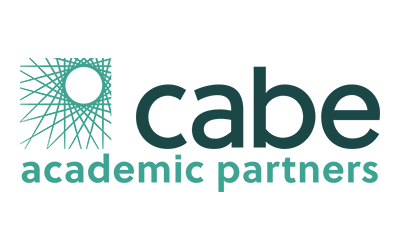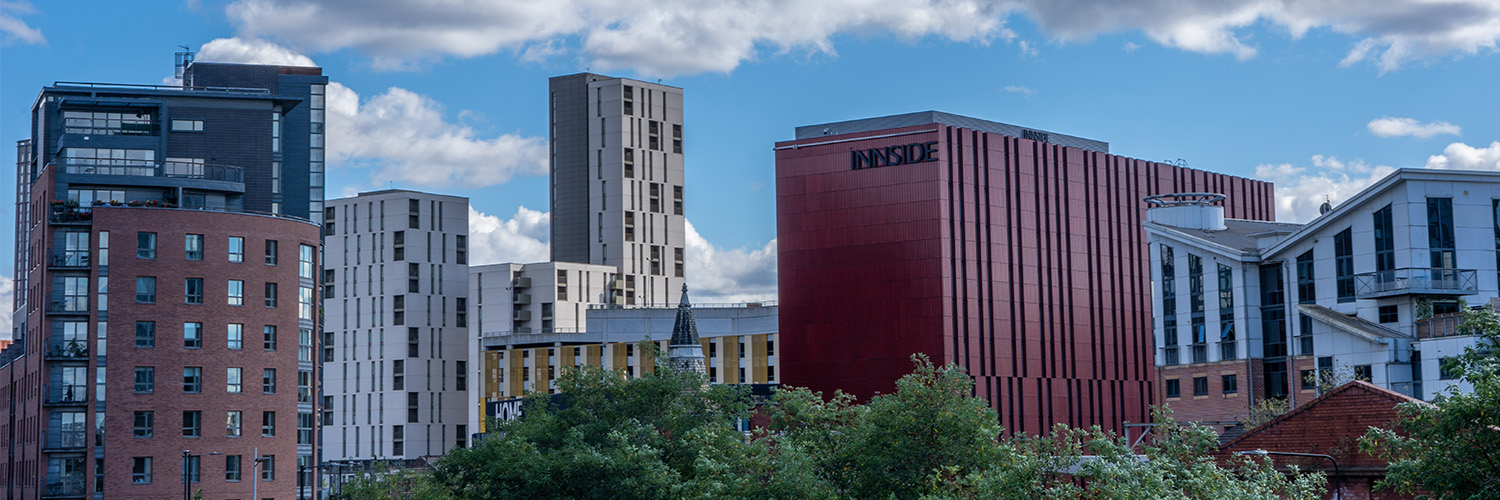
Building Surveying
Full-time
With placement
Three year
Four year
September 2026
In a nutshell
Building surveyors look at building pathology, focusing on refurbishment, reuse, development, restoration, repair, and conservation. With our Building Surveying degree course, you can develop a knowledge base and skillset that can lead to exciting global opportunities across many industries in the built environment sector.
A gateway to professional status, our BSc (Hons) Building Surveying degree is accredited by the Royal Institute of Chartered Surveyors (RICS), the Chartered Association of Building engineers (CABE) and the Chartered Institute of Building (CIOB). Studying an accredited course ensures that the knowledge and skills you develop will meet the highest industry standards.
Covering a broad range of key industry areas, you will learn about the construction industry and its legal and regulatory framework, and explore the relationship between a building and its internal and external environments. You’ll recognise how to diagnose problems with existing buildings and be aware of conservation and regeneration.
Salford ranks 8th on People & Planet's University League
People & Planet is the largest student network in the UK campaigning for social and environmental justice. They envision a future in which spiralling inequality, instability, climate crisis and resource depletion are reversed, and a world in which the balance of power in society has fundamentally shifted to an equal world that benefits all of us. University of Salford scored 71.0% and ranked 8th in the University League, with our highest scores in Managing Carbon, Staff and Student Engagement and Education for Sustainable Development.
Award-winning research you’ll learn from
University of Salford has won a prestigious Queen Elizabeth Prize for Education for its world-leading work in sustainable housing and energy efficiency. Through Energy House Labs, students benefit from teaching shaped by cutting-edge research that is helping to reduce energy costs, tackle fuel poverty and design low-carbon homes for the future.
The Queen Elizabeth Prizes for Education form part of the UK national honours system, recognising outstanding contributions by universities and colleges whose work delivers significant societal, economic and global benefit.
Start your study journey
Register for our next Open Day to learn more about studying Building Surveying, explore our facilities and meet the course team
You will:
- Build knowledge and skills to describe, explain, evaluate, and apply building construction techniques
- Learn to identify and use appropriate strategies and technologies applicable to building surveying practice
- Develop an understanding of the interactions between a building and its internal and external environments
- Gain the ability to identify symptoms and diagnose defects found in a diverse range of building types
- Understand urban regeneration so you can participate in future sustainable regeneration initiatives
options available
students accepted
This is for you if...
You have a passion for developing, advancing and shaping the future of the built environment
You're keen to develop technical and professional skills in a recognised role
You're interested in urban regeneration and building development, repair and restoration
All about the course
Course delivery
Delivered over three years full-time, our BSc (Hons) Building Surveying degree combines theoretical knowledge with the application of professional skills and competencies. You will learn through a blend of academic study and project work, mirroring the multidisciplinary, team-based approaches used by the construction industry.
In year one, you will build a strong foundation of knowledge, with essential modules covering regulation, economics, management, surveying and design, as you progress into year two, you’ll focus on specific topics and start your industry placement. By the final year, you’ll explore advanced modules and complete a research dissertation.
Learn more about the course modules in the section below.
Learning experience
Located at the heart of the largest property and construction market outside of London, Salford is a great choice for building surveying. Drawing on our strong links with the construction industry and professional bodies, you will experience site visits, guest speakers and placements. Working with ex-practitioner tutors, you will develop your surveying skills by working on live local projects with real clients and local surveying practices.
In year one, you will study the Building Surveying Practice 1 module so that you can solve discipline related tasks as well as ethical codes of behaviour appropriate to built environment practice.
Along with our series of theoretical modules, you’ll learn from external guest lectures, collaborate with students from related courses and experience group projects that will build your confidence and desirable skills for real-world construction careers.
Industry placement
On the Building Surveying degree course, you will have the option to take an industry placement year between years two and three. Although you will be responsible for securing your placement, our tutors will support you in finding a role, and monitor your progress throughout.
Industry placements are an excellent way to enhance your CV, gain hands-on work experience and build industry connections. We often find that placement students achieve higher final year grades.
Introduction to Law and Regulatory Frameworks
You will be introduced to English law and relevant statutory requirements for studying for vocational qualifications in the construction and property professions. The module also introduces you to the workings of the English legal system, to the law relating to contracts and to the regulatory framework affecting the use, management and development of land, in particular, planning, building control and the CDM regulations.
Economics and Management
On successful completion of this module, you will be able to demonstrate knowledge of basic economic concepts and principles of the economic environment in which the construction and property industry operates and knowledge of management theories in the construction context. You will be able to discuss the key role of the construction industry in the economy, current economic issues and management challenges in the construction and property context.
Surveying Practice
This module covers the basic principles and computer software that you will need to understand to enter into a career in the property industry. You will become familiar with the Royal Institution of Chartered Surveyors and begin to understand what your preferred pathway into Chartership will be.
The module will also help to enhance your academic writing, and you will learn how to undertake referencing at degree level. You will also become conversant in the mandatory competency requirements of the RICS.
Building Construction and Defects
This module aims to provide you with the ability to understand how buildings are constructed and what defects are common given the method of construction. You will also understand how this affects the value of the property. Within this module, you will have the opportunity to develop building construction and pathology knowledge and develop the ability to undertake critical analysis, self-reflection and personal development.
Digital Design Practice
Digital Design Practice aims to develop a knowledge and understanding of the theory and practical application of using industry standard design software for design, measurement, specification, and the production of graphical representations of buildings.
Environmental Science and Services
You will develop your knowledge and understanding of the interactions between a building and its internal and external environments. You will gain a fundamental understanding of the principles involved in building heat transfer, occupant thermal comfort, illumination and acoustics. You will also develop the ability to appraise and critically analyse the choices available to engineers when selecting systems to meet specifications.
Technology 2
You will enhance your knowledge and skills to describe, explain, evaluate, compare and apply building construction techniques and materials used in typical medium to large span single storey buildings and multi-storey industrial/commercial buildings. You will develop an understanding of both historic and contemporary construction techniques for medium to large buildings. You will learn to identify and critically review alternative construction technologies, and make informed decisions and recommendations.
Building Design Studies
The module enables you to work on the building design process, creating practical design solutions and specifications for new and existing buildings, as well as the selection of appropriate materials and construction methods, considering functional, technical, aesthetical, economic, and sustainable feasibility. You will learn how to represent a building project graphically, and apply building design principles to produce building drawings using Computer Aided Design (CAD) techniques and schedules of work.
Procurement and Administration
This module enables you to explore and differentiate the principal types of procurement systems and associated contracts used in the UK, you will also explore the fundamental procedures related to contract administration.
Sustainable & Energy Efficient Buildings
This module addresses the basic theory of sustainability within the context of the built environment and key principles of energy efficiency in construction. Throughout the module a range of cultural and intellectual factors including social, political, economic, and technical that shape the built environment are considered. The module fosters broad understanding of energy efficiency construction which takes net zero carbon policies and building physics principles into account.
Development Appraisal and Viability
The purpose of the module is to provide you with a good working knowledge and understanding of the aims and objectives of delivering a property development scheme. You will be able to identify opportunities, undertake feasibility studies and development appraisals to ascertain the viability of a proposed project or site. You will be required to understand a variety of funding options and how to apply them dependent on your client’s needs.
Property Law
This module further enhances your reporting and client advisory skills, allowing application of the main legal principles studied to a range of complex and in-depth problems. You will also learn to apply relevant case law relating to property for a variety of scenarios, such as trespass, nuisance, negligence, party wall matters and a variety of legal issues that often arise in property transactions. This module will help to enhance your professional report writing skills and capacity to act in an advisory manner. You will also address client care and diversity skills.
Discipline Research Project
You will develop your knowledge of good research practice through the completion of a written research proposal and a research document. You will also develop data analysis skills through the collection and critical appraisal of different sources of data.
Building Surveying Project
You will work in a disciplinary team in the context of a complex refurbishment, design and construction project based environment. The project will highlight the working skills required by building surveyors and the real world/problem based scenario they face. The experience will help you to develop a personal development plan based on your learning needs, career aspirations or professional requirements e.g. RICS.
Building Maintenance and Retrofit
This module will explore retrofitting buildings to improve energy efficiency. Key retrofit solutions and underlying causes of potential risks will be investigated, and decision-making proves to avoid these risks will be demonstrated. The module addresses key building maintenance and construction management principles considering assessment methods and innovative technologies.
Conservation and Urban Regeneration
Conservation and Urban Regeneration aims to provide students with a fundamental knowledge and understanding of theories and issues relating to the fields of conservation of historic buildings and urban regeneration. The module will seek to consider a range of relevant contemporary areas including insight into relevant policy and regulatory requirements alongside the professional and ethical codes of professional bodies. Contemporary real world case studies will be studied alongside an overview of theory, policy and practice techniques where experienced practicing professionals will deliver guest lectures providing real world insight and a firm foundation for more advanced study and practice.
Building Pathology
The Building Pathology Module at Level 6 looks at the theory and practice of building pathology whilst exploring destructive and non-destructive methods of testing and how buildings are constructed in a modern setting and historical setting analysing materials on differing contexts and the use or misuse of deleterious materials.
Building Surveying Professional Practice
The Building Surveying Professional Practice module aims to further develop a knowledge and understanding of the theories and issues that might impact on the recently graduated surveyor as they move into practice and training roles. The module will seek to consider a range of contemporary areas of interest relating to surveying buildings under the prevailing legal requirements and statutory obligations as well as the professional and ethical codes of the professional bodies.
We take a flexible approach to our course delivery that promotes diversity and inclusivity and provides a blended learning experience, which will vary to meet specific programme requirements. This learning time includes formal lectures and interactive activities such as seminars, tutorials, practical sessions, laboratory and studio learning. Smaller classes may be used to support collaborative activities such as project and group work and presentations. A range of different assessments and feedback is offered to meet the needs of both our diverse student body and specific subject needs.
Our undergraduate courses are normally made up of 20 credit modules which are equal to 200 hours of learning time. A three-year degree qualification typically comprises a total of 360 credits (120 credits per year).
Please note that exact modules and content offered may vary in order to keep content current and, for courses that offer optional modules, may depend on the number of students selecting particular options. When accepting your offer of a place to study on a programme with optional modules, you should be aware that optional modules may not all run each year. Your tutor will be able to advise you as to the available options on or before the start of the programme. Whilst the University tries to ensure that you can undertake your preferred options, it cannot guarantee this.
Frequently asked questions
Is building surveying a good career?
A Building Surveying degree could open global opportunities within the built environment industry. It can be a very rewarding career, working on-site on exciting new projects and seeing your work come to fruition when projects are finished.
What is Building Surveying?
Building surveying is the process of inspecting and assessing the condition of buildings to ensure they are safe, functional, and compliant with regulations. It involves evaluating structural integrity, identifying defects, and recommending repairs or maintenance.
Is a building surveying degree worth it?
Not only are building surveyors in high demand; this is a highly rewarding career that offers great mobility, specialist knowledge and a promising starter salary.
What does a building surveyor look for?
The role of a building surveyor is to assess the quality of a building’s relationship with its internal and external environments. A building surveyor might also have to consider other factors such as conservation and regeneration.
Is building surveying a stressful job?
Building surveying could be considered a challenging field due to the size, complexity, and busy nature of buildings and surveying projects. However, our students find our programmes incredibly rewarding when gaining a wide range of skills during their studies.
There are methods to ensure you’re getting the best of your Building Surveying degree, including practicing good time management and making time for yourself to recharge. If you find your studies overwhelming, there will be support available from your lecturers and university support staff.
Do building surveyors get paid well?
Building surveying can be a very financially rewarding career with graduate-level salaries at around £26,000.
School of Science, Engineering and Environment
Rising to the challenge of a changing world, our degree courses are designed to shape the next generation of urbanists, scientists, engineers and industry leaders.
Driven by industry, and delivered by supportive programme teams, you can develop the knowledge and skills to become unstoppable in your career.
Facilities
As a building surveying degree student, you will learn in our carefully designed study spaces that provide an inspiring environment to develop ideas, work collaboratively and share best practice.
Industry collaboration and research
When you start this Building Surveying degree with Salford, you are also joining a community making a difference in industry, our local region and in our wider society.
Many of our academics and technicians who support your course also deliver collaborative, interdisciplinary, high-impact work in a range of local and global built environment issues and challenges.
Discover how you are part of something bigger.
After your building surveying degree
Employment
We have designed the course to help you to develop a range of technical and professional skills which will make you highly employable. Along with gaining a solid understanding of the built environment, you will build communication and presentation skills, develop your collaborative techniques and acquire project management skills.
As a BSc (Hons) Building Surveying degree graduate, you will be well-equipped to pursue roles in a variety of areas including: the design of new buildings, the specification and supervision of construction work, refurbishments alterations and extensions, acquisition and condition surveying and building defect diagnostics.
Our building surveying graduates have secured roles working with a number of regional and national organisations including: B&Q, Darwen Borough Council, Central Manchester University Hospitals NHS Foundation Trust, EG Group, JN Bentley Ltd, Manchester City Council, National Grid, Network Rail, Property Tectonics Ltd, and STMC Building Control Ltd.
Charlotte France, a Salford Building Surveying alumna who graduated less than 10 years ago, is weeks away from achieving a milestone moment in her career that has seen her manage the construction of our new £65 million building in the heart of main campus. Read Charlotte's story.
Further study
You might find you want to learn more about the built environment. Building on our expertise, we offer a range of specialised postgraduate courses that can help you take your knowledge and career opportunities even further. Salford graduates and alumni will also receive a substantial fees discount.
How to get accepted on the building surveying course
Applicant profile
In addition to our academic entry requirements, we also look for applicants who enjoy teamworking, have good communication skills and show initiative. Possessing these characteristics will not only help you to fulfil your potential at university, but will also be essential for a successful career working in the built environment.
English language requirements
All of our courses are taught and assessed in English. If you are an international student and not from a majority English speaking country, you will need IELTS 6.0 with no element below 5.5. We also accept a range of other English language qualifications.
If you do not have the English language requirements, you could take the Pre-Sessional English course, or the International Foundation Year to gain entry onto this degree.
GCSE
In addition to Level 3 requirements, you must have evidence of Level 2 GCSE English and Maths at Grade C/4 or above.
UCAS tariff points
104 UCAS points.
A Levels
104 UCAS Tariff points from a minimum of 2 A-Levels.
BTEC Level 3 National Extended Diploma
MMM.
T level
Overall Grade M - Any subject. Must Pass all components.
Scottish Highers
104 UCAS Tariff points.
Irish Leaving Certificate
104 UCAS Tariff points.
International Baccalaureate
28 points.
Access to HE
104 UCAS Tariff points from a QAA Approved course.
International students
We accept qualifications from all around the world. Find your country to see a full list of entry requirements. If you do not have the English language requirements, you could take the International Foundation Year to gain entry onto this degree.
Salford Alternative Entry Scheme (SAES)
We positively welcome applications from students who may not meet the stated entry criteria but who can demonstrate their ability to pursue the course successfully. Once we receive your application, we'll assess it and recommend it for SAES if you are an eligible candidate.
There are two different routes through the Salford Alternative Entry Scheme and applicants will be directed to the one appropriate for their course. Assessment will either be through a review of prior learning or through a formal test.
To be considered for the Salford Alternative Entry Scheme you must have already achieved or be working towards GCSE Maths and English Grade C/4 (or equivalent).
Please contact Admissions for further information.
The cost of studying BSc (Hons) Building Surveying
| Type of study | Year | Fees |
|---|---|---|
| Full-time home | 2026/27 | £9,790 per year |
| Full-time international | 2026/27 | £18,120 per year |
Tuition fees will increase in the second and each subsequent year of your course by the rate of inflation, subject to the maximum fee limits set out by the UK Government.
Additional costs
You should consider further costs which may include books, stationery, printing, binding and general subsistence on trips and visits.
International student scholarships
If you are a high-achieving international student, you may be eligible for one of our scholarships to study building surveying.
Learn more about our latest international scholarships.
All set? Let's apply
Enrolment dates
Student information
Terms and conditionsUCAS information
Course ID K230
Institution S03







